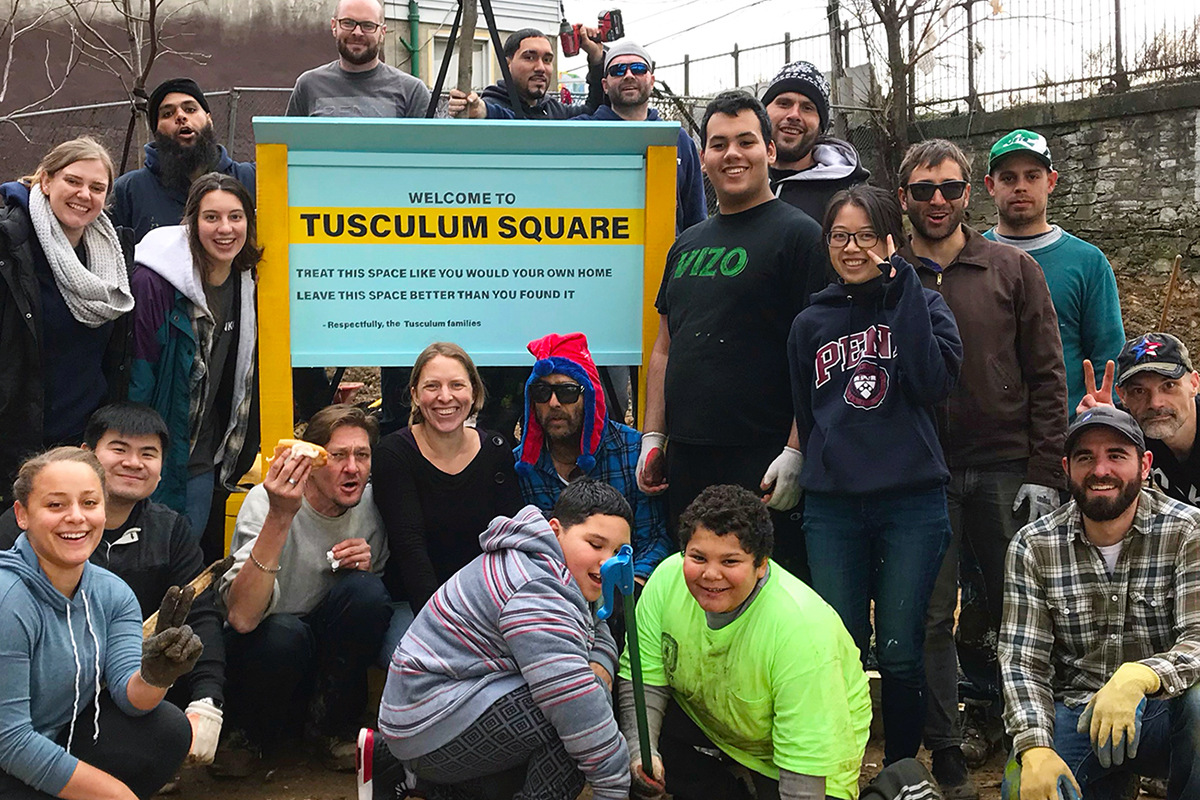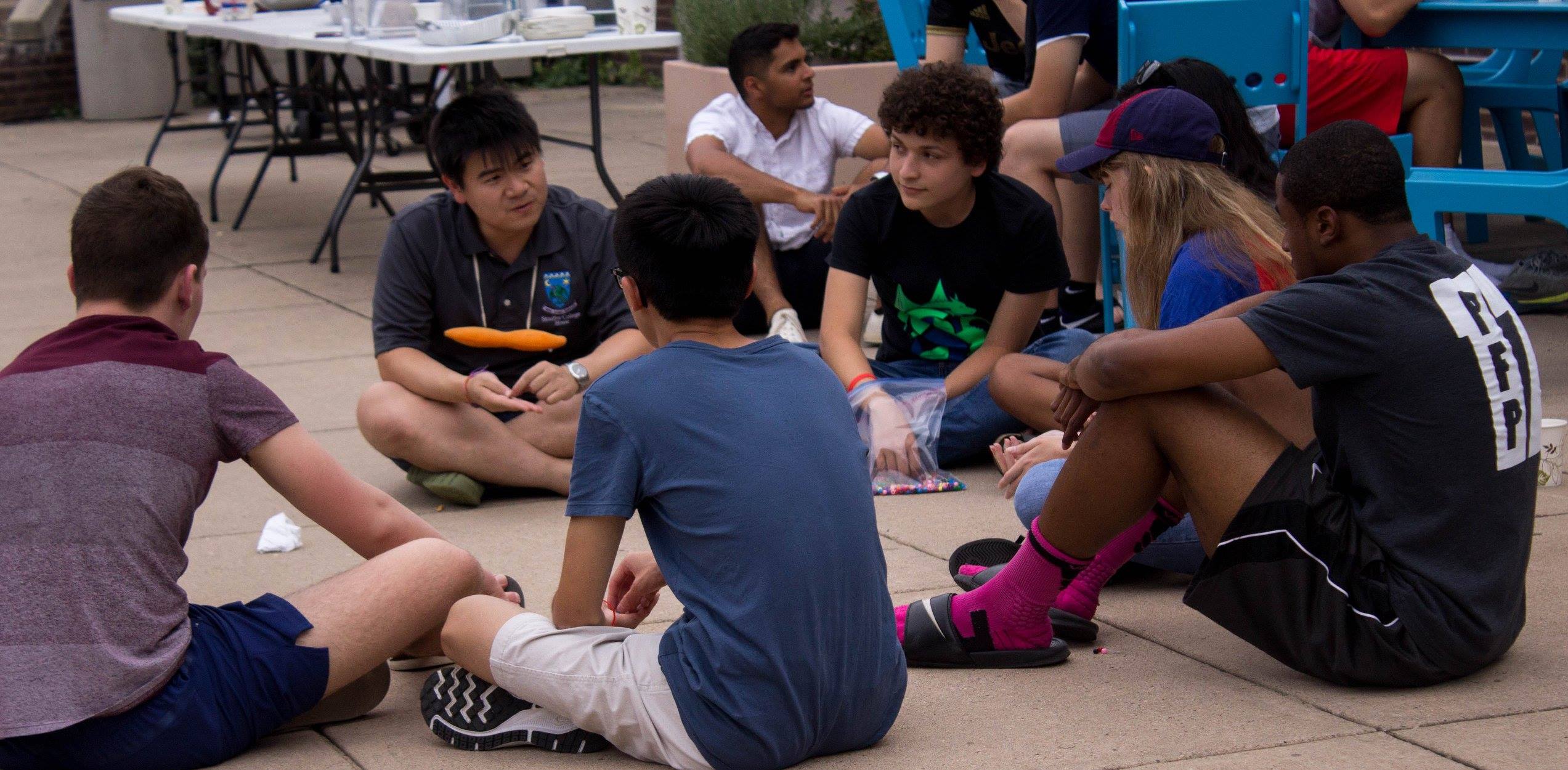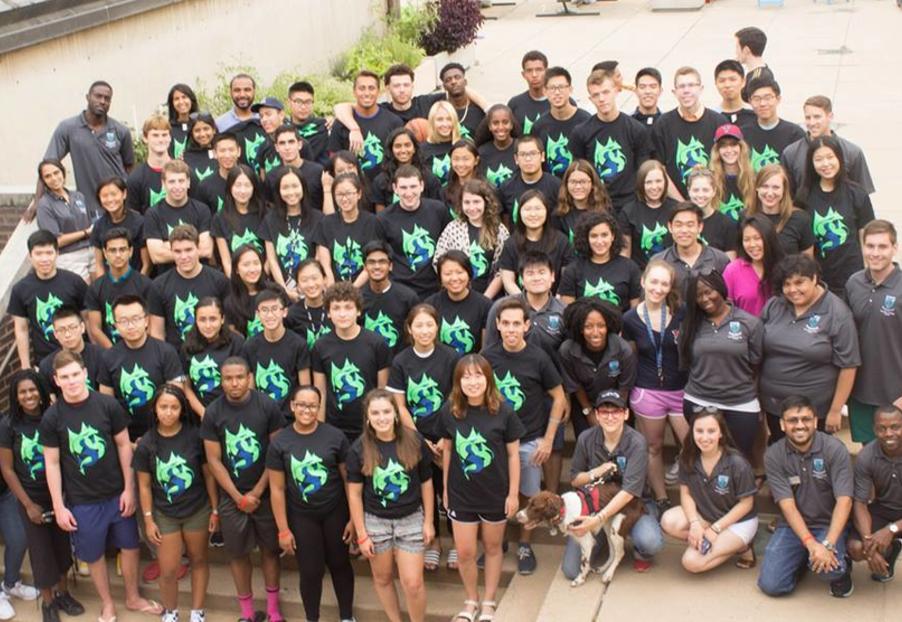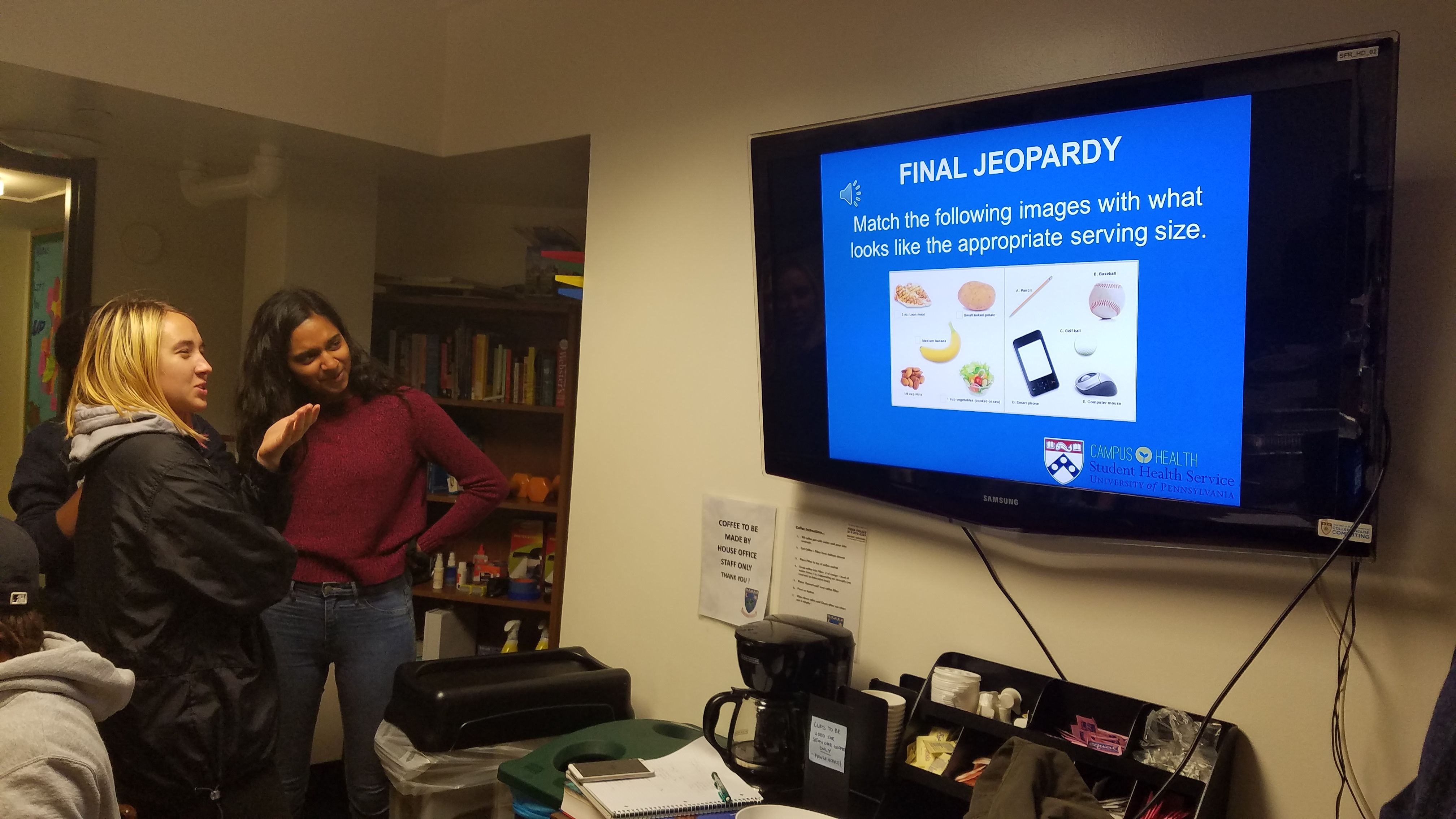Park Sinchaisri
Operations + Analytics Professor at Berkeley Haas | Future of Work + Behaviors + Citiesวิชินพงศ์ สินชัยศรี
I am an Assistant Professor of Operations and Information Technology Management at UC Berkeley Haas School of Business. I also teach Prescriptive Analytics for the Wharton Global Youth Program in the summer of 2021. My official website is here.
My primary research interests are in the design and analysis of data-driven and human-centric solutions to problems in operations management, currently focusing on the gig economy ("How do workers decide their flexible schedule?"), dynamic pricing ("How to price when it affects quality perception?"), human-AI interface ("Can ML offer simple tips to help humans?"), and urban analytics ("Are more social neighborhoods safer?").
I received my PhD in Operations, Information, and Decisions from The Wharton School at the University of Pennsylvania in 2021, advised by Gad Allon, my SM in Computational Science and Engineering from MIT in 2016, co-advised by Georgia Perakis and Y. Karen Zheng, and my ScB in Computer Engineering and Applied Mathematics-Economics from Brown University in 2012. I had also worked as a software engineer at Oracle, a strats analyst at Goldman Sachs, and a data scientist at Deloitte Consulting. At Penn, I served as the Director of Marketing for TEDxPenn, a Graduate Associate at Stouffer College House, and a Wharton Social Impact Fellow. Growing up in Bangkok, I am a world traveller, avid foodie, and aspiring creative artist.
08/31/21
- Our paper Learning Best Practices is selected as one of the finalists for the 2021 INFORMS Behavioral Operations Management Best Working Paper Award (winners will be announced at INFORMS 2021).
08/17/21
- Our paper Learning Best Practices is selected as one of the finalists for the 2021 INFORMS Technology, Innovation Management and Entrepreneurship Section Best Working Paper Award (winners will be announced at INFORMS 2021).
07/09/21
- I am accepted to participate in the inaugural Summer Institute in Machine Learning and Economics, hosted by the Center for Applied Artificial Intelligence at Chicago Booth!
07/07/21
- Our paper Drivers of Gig Workers is accepted for presentation in a plenary session at the 14th Annual People and Organizations Conference.
07/05/21
- Our paper Learning Best Practices is accepted for presentation at ICML 2021 (Workshops on Reinforcement Learning for Real Life, Human-AI Collaboration in Sequential Decision-Making, and Human in the Loop Learning) and EC'21 (Workshop on Operations of People-Centric Systems).
05/14/21
- Our paper Learning Best Practices is accepted for presentation at the 7th International Conference on Computational Social Science.
05/05/21
- Our paper Learning Best Practices won the Second Place at the 2021 CBOM Junior Scholar Paper Competition.
04/27/21
- Our paper Learning Best Practices is accepted for presentation at the Service Management SIG, 2021 MSOM Conference.
04/18/21
- Our paper The Structural Model of Gig Workers is accepted for presentation at the 2021 MSOM Conference.
04/01/21
- Our paper Learning Best Practices is accepted for presentation at the 2021 AOM Annual Meeting.
Research Interests
- Behavioral and human-centric operations management, empirical operations management, future of work/gig economy, people analytics, behavioral economics, applied machine learning, human-computer interaction, revenue management and pricing, urban analytics, computational social science
Research Methods
- Econometrics, randomized experiments, reinforcement learning, interpretable machine learning, structural estimation
Working Papers
The Impact of Behavioral and Economic Drivers on Gig Economy Workers
with Gad Allon and Maxime CohenMajor Revision (1st Round) at Manufacturing & Service Operations Management
Press: Knowledge@Wharton
Finalist, POMS CBOM Junior Scholar Paper Competition, 2020
Best Paper in Operations and Supply Chain Management, Academy of Management, 2019
Accepted to the 2019 MSOM Service SIG
2nd Place, People Analytics Conference Research Paper Competition, 2019
3rd Place, INFORMS Behavioral Operations Management Best Working Paper Award, 2019
Winner, Baker Retailing Center Research Grant, 2018
Gig economy companies benefit from labor flexibility by hiring independent workers in response to real-time demand. However, workers' flexibility in their work schedule poses a great challenge in terms of planning and committing to a service capacity. Understanding what motivates gig economy workers is thus of great importance. In collaboration with a ride-hailing platform, we study how on-demand workers make labor decisions; specifically, when to work and for how long. Our model offers a way to reconcile competing theories of labor supply regarding the impact of financial incentives and behavioral motives on labor decisions. We are interested in both improving how to predict the behavior of gig economy workers and understanding how to design better incentives. Using a large comprehensive dataset, we develop an econometric model to analyze workers' labor decisions and responses to incentives while accounting for sample selection and endogeneity. We find that financial incentives have a significant positive influence on the decision to work and on the work duration-confirming the positive income elasticity posited by the standard income effect. We also find support for a behavioral theory as workers exhibit income-targeting behavior (working less when reaching an income goal) and inertia (working more after working for a longer period). We demonstrate via numerical experiments that incentive optimization based on our insights can increase service capacity by 22% without incurring additional cost, or maintain the same capacity at a 30% lower cost. Ignoring behavioral factors could lead to understaffing by 10-17% below the optimal capacity level. Lastly, inertia could be a potential sign of workers' loyalty to the platform.
Markdown Pricing with Quality Perception
with Rim Hariss, Georgia Perakis, and Y. Karen ZhengMajor Revision (2nd Round) at Manufacturing & Service Operations Management
Honorable Mention, MIT ORC Best Student Paper Award, 2017
Consumers often perceive higher-priced products to have higher quality. Less is known on how quality perception is affected by price markdowns. In addition, it is an open question whether and how consumers’ ex-ante expectation on a future markdown affects their quality perception as well as purchase decisions. We answer these questions in a markdown setting under a fixed inventory. This paper adds to the growing literature that incorporates consumers’ behavioral regularities in revenue management by studying the new dimension of quality perception and generates new insights absent in the current literature. Our results offer insights on how retailers should adapt their markdown strategy in the presence of price-based quality perception. We develop a consumer model that incorporates quality perception and emotional loss when the expected markdown is too optimistic as compared to the actual markdown. We embed this model into the retailer’s markdown optimization and examine the impact of consumers’ behavioral factors on the retailer’s optimal strategy. Finally, we design and conduct a consumer study to calibrate our model and validate the functional relationships among key factors. Consumers’ quality perception increases with the products full price while it decreases with the (expected) markdown. We show that the retailer’s optimal markdown is nonmonotone in these quality perception parameters. The nonmonotonicity is driven by the nontrivial tradeoff of trying to maintain a higher perceived quality by the consumers while controlling potential loss emotion that could arise if consumers observe a smaller-than-expected markdown, particularly when total market demand is not very large. Furthermore, we find that it is beneficial for the retailer to pre-announce and commit to a markdown strategy to prevent a mismatch between consumers’ expectation and the actual markdown. This approach benefits the retailer by eliminating the negative effect on sales of the consumers’ loss emotion due to an optimistic expectation. Ignoring these behavioral factors can substantially hurt the retailer’s payoff. When inventory is tight, it is critical to correctly capture consumers quality perception (38% average loss in payoff if ignored). When instead inventory is sufficient, the retailer should be mindful of the potential emotional loss that its markdown could create among its consumers.
Improving Human Decision-Making with Machine Learning
with Hamsa Bastani and Osbert BastaniUnder review
(Previous title: Learning Best Practices: Can Machine Learning Improve Human Decision-Making?)
Finalist, INFORMS BOM Best Working Paper Award, 2021
Finalist, INFORMS TIMES Best Working Paper Award, 2021
2nd Place, POMS CBOM Junior Scholar Paper Competition, 2021
Accepted to the 2021 MSOM Service SIG
Accepted to the Workshop on Operations of People-Centric Systems at EC'21
A key aspect of human intelligence is their ability to convey their knowledge to others in succinct forms. However, despite their predictive power, current machine learning models are largely blackboxes, making it difficult for humans to extract useful insights. Focusing on sequential decision-making, we design a novel machine learning algorithm that conveys its insights to humans in the form of interpretable "tips". Our algorithm selects the tip that best bridges the gap in performance between human users and the optimal policy. We evaluate our approach through a series of randomized controlled user studies where participants manage a virtual kitchen. Our experiments show that the tips generated by our algorithm can significantly improve human performance relative to intuitive baselines. In addition, we discuss a number of empirical insights that can help inform the design of algorithms intended for human-AI interfaces. For instance, we find evidence that participants do not simply blindly follow our tips; instead, they combine them with their own experience to discover additional strategies for improving performance.
Community Vibrancy and its Relationship with Safety in Philadelphia
with Shane JensenAccepted at PLoS One
Press: Wharton Stories
Wharton Social Impact Initiative Fellowship, 2018-2020
To what extent can the strength of a local urban community impact neighborhood safety? We construct measures of community vibrancy based on a unique dataset of block party permit approvals from the City of Philadelphia. Our first measure captures the overall volume of block party events in a neighborhood whereas our second measure captures differences in the type (regular versus spontaneous) of block party activities. We use both regression modeling and propensity score matching to control for the economic, demographic and land use characteristics of the surrounding neighborhood when examining the relationship between crime and our two measures of community vibrancy. We conduct our analysis on aggregate levels of crime and community vibrancy from 2006 to 2015 as well as the trends in community vibrancy and crime over this time period. We find that neighborhoods with a higher number of block parties have a significantly higher crime rate, while those holding a greater proportion of spontaneous block party events have a significantly lower crime rate. We also find that neighborhoods which have an increase in the proportion of spontaneous block parties over time are significantly more likely to have a decreasing trend in total crime incidence over that same time period.
The Structural Behavioral Model of Gig Economy Workers
with Gad Allon, Maxime Cohen, and Ken Moon
In preparation to submit to Management Science
Accepted to the INFORMS Revenue Management and Pricing Conference 2021
Mack Institute Research Fellowship, 2020
Fishman Davidson Center Research Grant, 2019
Russell Ackoff Fellowship, 2019
One appeal of the gig economy is the flexibility in the choice of service. Workers can seamlessly switch the platform they work for and exhibit so-called "multihoming" behavior. An increase in the number of options available to gig workers has resulted in increased competition among gig platforms to win over a limited pool of workers. How workers respond to platform competition is therefore an important topic to study, but studying multihoming behavior empirically is challenging due to the unobservability of work options. In this work, we leverage proprietary data from a ride-hailing platform, public trip records data, and a machine learning-based adversarial estimation approach to develop and estimate a structural model of gig workers' labor decisions when facing multiple work opportunities. We find that workers are strategic in their choice of initial service location to increase their utilization and are prone to multihoming behavior when facing longer idle times. Our counterfactual analyses demonstrate the effectiveness of different incentive policies in influencing multihoming behavior and offer strategies to help the platform manage their workers during different demand scenarios.
Work in Progress
Signaling Quality and Speed Through Staffing Decisions
with Serguei NetessineMack Institute Research Fellowship, 2020
From behavioral viewpoint, longer queue can signal high quality/low prices of the products. On the other hand, shorter queue can be attractive because of promise of a faster service. Using unique data on the people who pass by the small retail stores vs. enter and purchase, we evaluate these two behavioral effects of queuing and demonstrate their impact upon optimal staffing policies in the stores.
Scheduling Customers and Resources in the On-Demand Economy
with Gad Allon and Christian TerwieschMack Institute Research Fellowship, 2020
Other Works
Social Impact in Practice/Urban Planning
As a city planning enthusiast, I always seek opportunities to make a positive social impact to the local community. Beyond my urban analytics research with the Wharton Social Impact Initiative, I have been working with PennPraxis to meaningfully engage with community partners and practitioners in Philadelphia and implement community development projects. In Fall 2018, we transformed a vacant lot on the border between a residential area and a homeless encampment in Kensington ("Walmart of Heroin") into a beautiful green space ("Tusculum Square"). The lot, once filled with litter and home to illegal dumping, now stands as a welcoming space for residents and visitors. I co-wrote an article about this transformation for a city planning magazine (joint work with Alex Baum and Mariela Hernandez).




People Analytics
I enjoy analyzing data on human behavior to uncover new insights (and inspire my research). One area of interest is to identify biases and discriminatory behaviors from data. In 2018, I looked into the review process for the Global Health Corps (GHC) fellowship and identified biases and disagreements among reviewers (joint work with Titipat Achakulvisut). Our work won the Second Prize at the People Analytics Conference Case Competition.
Student Mental Health/Suicide Prevention
I have served as a Graduate Associate at Penn's Stouffer College House since 2017, where I provide academic, social, and mental support to resident undergraduate students. My in-house programs emphasize fostering a strong, supportive, and inclusive community and enhancing student wellness. I received the Excellence in Student and Community Engagement Award in 2019 for this role. I have also collaborated with the Children's Hospital of Philadelphia on their work to prevent suicide among pediatric patients. We interviewed patients, families, and healthcare providers to identify care process improvements that may reduce suicides (joint work with Cadence Bowden and Stephanie Doupnik, MD).





Berkeley Haas
-
UGBA 141 Production and Operations Management (Lecturer)
Spring 2022 (Undergrad)A survey of the concepts and methodologies for management control of production and operations systems. Topics include inventory control, material requirements planning for multistage production systems, aggregate planning, scheduling, and production distribution.
Wharton
-
OIDD 001 Prescriptive Analytics (Instructor)
Summer 2021 (Pre-Baccalaureate)In this course, we will explore the subject of quantitative business decision making. Specifically, we will study optimization and simulation tools and provide you with a set of key skills in the area of prescriptive analytics. We will illustrate the use of these tools in a variety of business applications, including manufacturing, logistics, inventory management, capital budgeting, insurance, and revenue management.
OIDD 299 Judgment & Decision Making Research Immersion (Instructor/Mentor)
Spring 2019, Fall 2019, Spring 2020, Fall 2020, Spring 2021 (Undergrad)This class provides a high-level introduction to the field of judgment and decision making (JDM) and in-depth exposure to the process of doing research in this area. Throughout the semester you will gain hands-on experience with several different JDM research projects. You will be paired with a PhD student or faculty mentor who is working on a variety of different research studies. To complement your hands-on research experience, throughout the semester you will be assigned readings from the book Nudge by Thaler and Sunstein, which summarizes key recent ideas in the JDM literature. You will also meet as a group for an hour once every three weeks to discuss the projects you are working on, to discuss the class readings, and to discuss your own research ideas stimulated by getting involved in various projects.
OIDD 236 Scaling Operations in Technology Ventures (TA)
Spring 2021 (Undergrad)This course helps students learn to make strategic scaling decisions that are grounded in operational reality. Students will study how to build and evaluate the "operation systems" of the firm to maximize value with the focus on scaling the firm's operations. This involves tailoring the firm's operational competencies, assets, and processes to a specific business strategy. The course will approach the challenge of scaling operations and operations strategy by taking a holistic view that incorporates competitive strategy, financial evaluation, and the customer experience.
OIDD 636 Scaling Ventures: Aligning Operations with Strategy (TA)
Spring 2021 (MBA)The course is designed for students who plan to join rapidly growing ventures, who are preparing to scale their own ventures, or who plan to evaluate such ventures through the lens of investors or consultants. The goal of this course is to make strategic scaling decisions that are grounded in operational reality. The course adopts the perspective of the CEO and functional leaders in growing ventures and organizations and explores issues that leaders and managers encounter after a firm achieves product-market fit. We will approach the challenge of scaling by taking a holistic view that incorporates competitive strategy, financial evaluation, and the customer experience. We focus on decisions and challenges that many firms that try to scale their operations face with the focus on assessing the readiness of the firm to scale, and the required steps to scale. In particular, we will discuss whether the firm needs to reformulate its strategy; whether the firm should build competencies inhouse (for example, by investing in a portfolio of assets) or buy them (for example by developing and implementing a network strategy working with external suppliers) and the risks associated with scaling these. We will also discuss the organizational implications of scaling, focusing on designing the organizational structure and culture for growth, all while managing the challenges within and across the product, engineering, sales, marketing and sales functions.
OIDD 611 Quality & Productivity (TA)
Fall 2019 (EMBA), Spring 2020 (MBA), Fall 2020 (MBA), Spring 2021 (EMBA)Matching supply with demand is an enormous challenge for firms: excess supply is too costly, inadequate supply irritates customers. In the course, we will explore how firms can better organize their operations so that they more effectively align their supply with the demand for their products and services. Throughout the course, we illustrate mathematical analysis applied to real operational challenges--we seek rigor and relevance. Our aim is to provide both tactical knowledge and high-level insights needed by general managers and management consultants. We will demonstrate that companies can use (and have used) the principles from this course to significantly enhance their competitiveness.
MGMT 610 Foundations of Teamwork and Leadership (Facilitator)
Fall 2018, Fall 2019, Fall 2020 (MBA)MGMT 610 is the first core course in the MBA Program and it cannot be waived. The first week of the fall term (in August) is dedicated to this formative and foundational experience. This course focuses on developing students' knowledge and skill set for teamwork and leadership. It is meant to be an intense immersion experience that draws strongly on the pedagogy of the Wharton Teamwork and Leadership Simulation, a team-based, highly interactive simulation that was custom-designed specifically to allow students to experience the core concepts they learn in this class. The three goals of this course are for students to learn: 1. Leadership behaviors: how to enact the skills that contribute to a team's effective performance. 2. Team dynamics: how to be an effective team member, as well as how to best design work teams; 3. Organizational awareness: understanding organizational culture. Format: A custom-designed Wharton-only simulation is paired with course sessions to deliver a unique learning experience. Classes will include experiental learning combined with debriefings, lectures, readings, class discussion and personal and group performance feedback. This course reflects the realities that informal leadership occurs in teams on an ongoing basis, that being a good team player is a part of leadership, and that many of one's early experiences with leadership will occur while working on teams.
OIDD 615 Operations Strategy (TA)
Spring 2019 (EMBA)Operations strategy is about organizing people and resources to gain a competitive advantage in the delivery of products (both goods and services) to customers. This course approaches this challenge primarily from two perspectives: 1) how should a firm design their products so that they can be profitably offered; 2) how can a firm best organize and acquire resources to deliver its portfolio of products to customers. To be able to make intelligent decisions regarding these high-level choices, this course also provides a foundation of analytical methods. These methods give students a conceptual framework for understanding the linkage between how a firm manages its supply and how well that supply matches the firm's resulting demand. Specific course topics include designing service systems, managing inventory and product variety, capacity planning, approaches to sourcing and supplier management, constructing global supply chains, managing sustainability initiatives, and revenue management. This course emphasizes both quantitative tools and qualitative frameworks. Neither is more important than the other.
OIDD 101 Intro to Operations, Information & Decisions (TA)
Fall 2018 (Undergrad)OIDD 101 explores a variety of common quantitative modeling problems that arise frequently in business settings, and discusses how they can be formally modeled and solved with a combination of business insight and computer-based tools. The key topics covered include capacity management, service operations, inventory control, structured decision making, constrained optimization and simulation. This course teaches how to model complex business situations and how to master tools to improve business performance. The goal is to provide a set of foundational skills useful for future coursework atWharton as well as providing an overview of problems and techniques that characterize disciplines that comprise Operations and Information Management.
MIT
-
1.200 Transportation Systems Analysis: Performance & Optimization (TA)
Fall 2014, Fall 2015 (SM-PhD)
Overall rating: 6.3/7 (2014), 6.4/7 (2015)Problem-motivated introduction to methods, models and tools for the analysis and design of transportation networks including their planning, operations and control. Topics include: capacity of critical elements of transportation networks; traffic flows and deterministic and probabilistic delay models; formulation of optimization models for planning and scheduling of freight, transit and airline systems, and their solution using software packages; user- and system-optimal traffic assignment; control of traffic flows on highways, urban grids, and airspace; stochastic simulation modeling of traffic flows.
Recitation notes:
capacity/flow | LP: 1, 2 | IP | queueing: 1, 2, 3 | networks: 1, 2, 3 | simulation | review15.730 Data, Models & Decisions (TA)
Spring 2015 (EMBA)
Overall rating: 4.35/5Introduces students to the basic tools in using data to make informed management decisions. Covers basic topics in data analytics, including introductory probability, decision analysis, basic statistics, regression, simulation, linear and discrete optimization, and introductory machine learning. Spreadsheet exercises, cases, and examples drawn from marketing, finance, operations management, and other management functions. Restricted to first-year Sloan master's students.
Recitation notes:
decision analysis/binomial | LP/Solver | nonlinear optimization | review Brown
-
CSCI 40 Intro to Scientific Computing & Problem Solving (TA/Project Mentor)
Spring 2012This course provides an introduction to using computers to solve STEM (Science, Technology, Engineering, and Mathematics) data analysis, visualization, simulation, and numerical analysis problems. The course begins with an introduction to the basics of programming, accompanied by several applications of fundamental coding elements and concepts. As we do this we will explore some of the breadth of Computer Science as a discipline. This first part of the course will be taught in Python. Following this, we will explore more specialized topics related to scientific computing and mathematics that will allow students to access and analyze a number of "real world" problems. The later portion of the course will be taught in MATLAB.
ENGN 900 Managerial Decision Making (TA/Discussion Leader)
Spring 2012Ways of making effective decisions in managerial situations, especially situations with a significant technological component; decision analysis; time value of money; competitive situations; forecasting; planning and scheduling; manufacturing strategy; corporate culture. Lectures and discussions.
Haas School of Business, University of California Berkeley, CA
7/2021 - PresentAssistant Professor of Operations and IT Management
The Center for Applied Artificial Intelligence, University of Chicago Virtual
8/2021Summer Institute in Machine Learning and Economics
The Wharton School, University of Pennsylvania Philadelphia, PA
8/2016 - 5/2021PhD in Operations, Information, and Decisions
AM in Statistics
Certificate in Social, Cognitive, and Affective Neuroscience
Wharton Social Impact Initiative Fellow
Penn Institute for Urban Research Affiliated PhD Scholar
Stephen M Ross School of Business, University of Michigan Ann Arbor, MI
6/2019Behavioral Operations Management Summer Institute
TEDxPenn Phildelphia, PA
9/2016 - 4/2019Director of Marketing/Senior Advisor
Deloitte Consulting Boston, MA
2/2016 - 9/2016Data Scientist, Strategy & Operations
Selected clients: retail/healthcare (medication adherence study), foodservice distributor (supply chain optimization), non-profit healthcare (people analytics), beverage corporation (automation)
Massachusetts Institute of Technology Cambridge, MA
9/2013 - 2/2016SM in Computational Science and Engineering
Kaufman Teaching Certificate Program
Goldman Sachs New York, NY
6/2014 - 8/2014Summer Analyst, Securities Strats
Oracle Redwood Shores, CA
6/2012 - 9/2013Software Engineer, Fusion Financials Technology
Brown University Providence, RI
9/2008 - 6/2012ScB in Computer Engineering and Applied Mathematics-Economics
Tau Beta Pi, Omicron Delta Epsilon, Sigma Xi
Karen T Romers Undergraduate Teaching and Research Award
Symantec Los Angeles, CA
6/2010 - 8/2010Summer Research Intern, UCLA IPAM-RIPS
Haas School of Business, University of California Berkeley, CA
6/2009 - 8/2009Certificate in Business for Arts, Sciences, and Engineering
